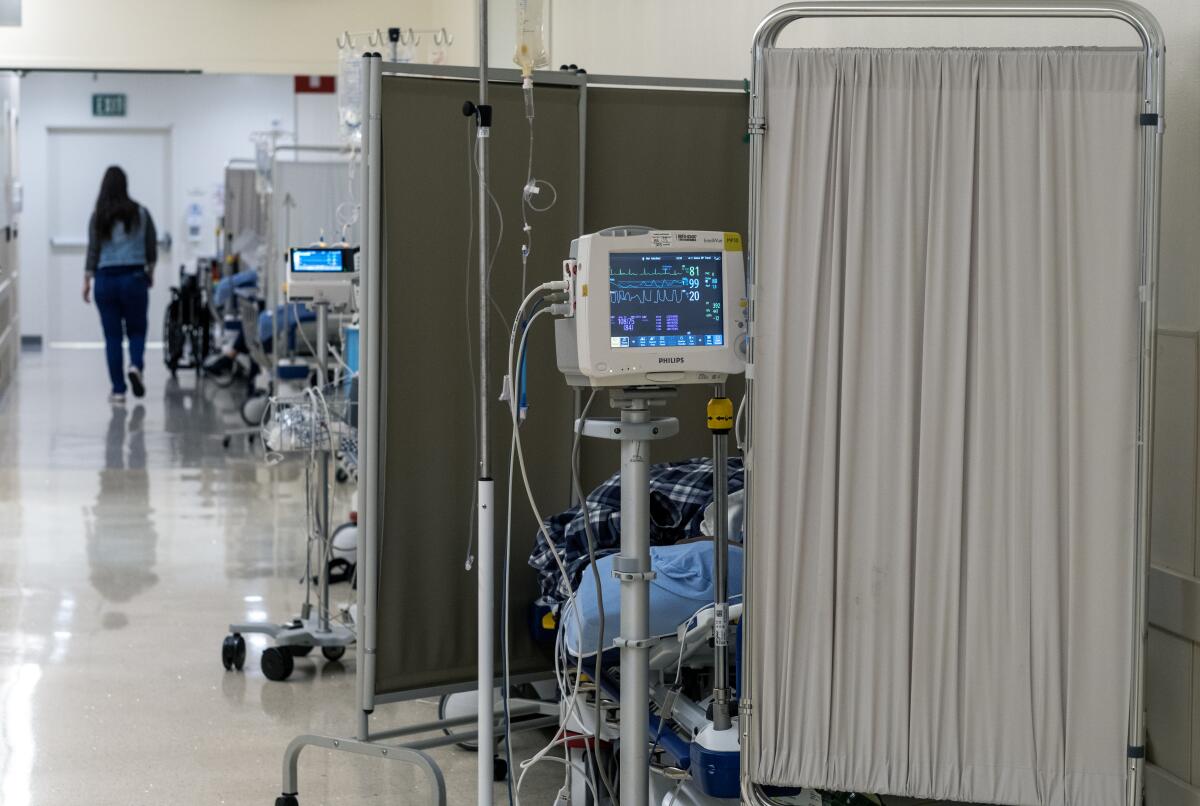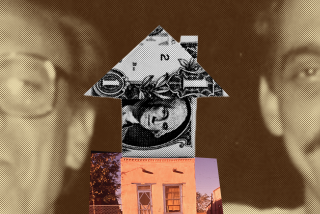Opinion: My mom suddenly got brain cancer. At 41, I’m caregiving in the land of the sick

I’ve long joked with my mom that I’d find a way to pay her back for all her trouble. Her response has always been “you’re not supposed to,” and she’s right: Kids can’t repay their parents, and I’d certainly never be able to.
Then she got brain cancer and I began to realize how much I owed.
My mother’s sickness came on suddenly. She was working full time as a nurse at Los Angeles General Medical Center until early May, when a brainstem tumor emerged from hiding. She fell in her house on Friday, and it’s no exaggeration to say that she would have died on the floor if I hadn’t broken into her home and called the paramedics. The tumor has taken away her ability to stand, open her eyes, swallow or speak clearly.
In the past month, my mom has been taken “from the country of the well across the stark frontier that marks off the land of malady,” as the late Christopher Hitchens wrote when he discovered his cancer. And as her caregivers now, my brother and I migrated with her.
She’s 65. My brother is 40. I’m 41 with three young kids. Most middle-aged Americans will eventually look after their aging parents in some way, even without the shock of a dire and unexpected illness. Many fear what that will involve, and for good reason: According to the World Economic Forum, the entire $6-trillion “care economy” risks collapsing under the weight of an aging population and healthcare worker burnout.
In a short few weeks, my family has been plunged into that economy and forced to plan for a future where there is no safety net or, at best, a frayed one.
While my mom is drifting in and out of consciousness in her hospital bed, my brother, the lawyer, works the phones. He’s been gathering information to ensure that our mom’s employer-provided healthcare coverage doesn’t lapse or change in any way. And he relieves me at her bedside so I can go home and be a father for a few hours.
What I lack in my brother’s professional skills, I make up for in experience. Six years ago, my wife was hospitalized and treated for cancer. The stilted conversations with doctors, the harried rearranging of life, the need to translate this health crisis for my kids, the skating on thin financial ice, the pangs of guilt from sliding into emotional numbness — I wish I didn’t have to live through it again.
But there are moments of relief and comfort even in this land of the sick. We may have a complicated, scary, inadequate medical system, but the workers keeping it all together exhibit a kindness and competence that I can only marvel at.
The doctors — from the surgeon who threaded a needle into my mother’s brain to the oncologists planning her chemotherapy — make me wish I had developed some kind of skill that could save lives. The nurses and their assistants who care for patients day and night deepen my awe for those called to my mom’s profession. The security guard who prays for my mom makes me regret ever being unkind to anyone.
Even the caseworker who regretfully informed us that long-term skilled nursing care isn’t covered by my mom’s insurance is trying to help. Or it seems that way.
And my mom? She’s been independent and strong her whole life, starting as a single, divorced parent of two toddlers back in the 1980s. She spent her career delivering healthcare to some of Los Angeles’ most vulnerable patients, including jail inmates. She worked during a pandemic that exhausted doctors and nurses half her age.
And now, with a well-deserved retirement finally in sight, this.
My mom can never be repaid. But with her illness, my brother, my wife, my children and I have an opportunity to try.
More to Read
A cure for the common opinion
Get thought-provoking perspectives with our weekly newsletter.
You may occasionally receive promotional content from the Los Angeles Times.











